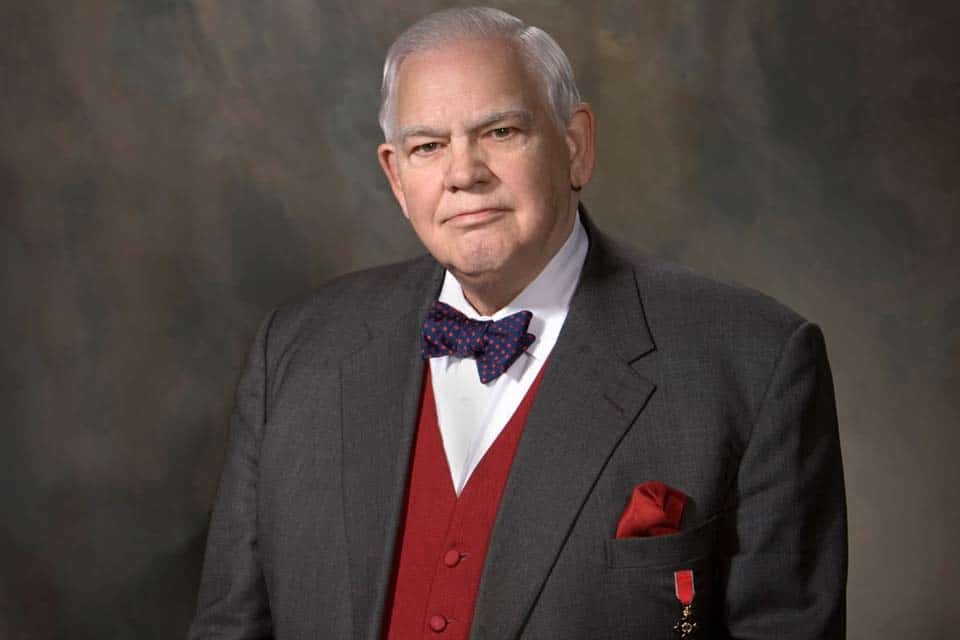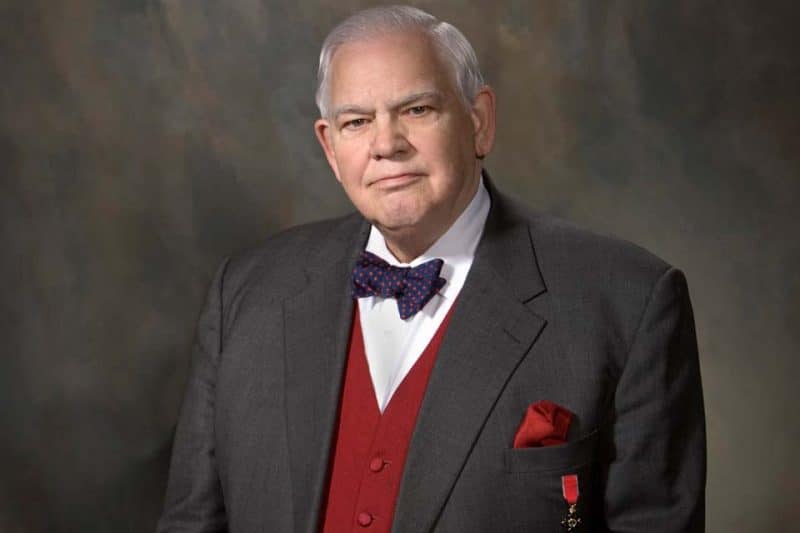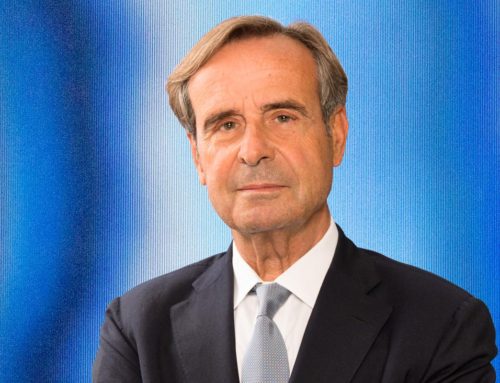Charisma
and leadership
Do great speeches give you goose bumps? You wish that your presentation was as memorable as the speech “I have a dream” by Martin Luther King? To guide you, we interviewed a leading authority in speechwriting: James C. Humes, who served as author for five presidents of the United-States. This former professor in Communication and Leadership at the South Carolina University wrote many books on the subject. He shared his vision with us and gave advice on how to be a charismatic speaker.

James C. Humes wrote a reference book in the field of charisma and leadership entitled Speak like Churchill, stand like Lincoln. We had the privilege of interviewing him a few years ago. On this occasion, he shared timeless advice with us.
Agent Majeur: As a former speechwriter to 5 US presidents, what is the best piece of advice you can give about speechwriting?
James C. Humes: You can write the best speech, but the man or the woman you wrote it for has to have the leadership charisma to pull it off. It can make the speaker look good, but only with the proper preparation.
How would you define charisma?
In Greek, it means ‘grace’. It is a certain magic that the speaker has when he walks into the room. It may be your height, like Charles de Gaulle. But Napoleon was charismatic and he was short. You can make your dress powerful and dramatic, as well. Margaret Thatcher always carried a big handbag. It’s not just about physical appearance. Poise, presence and power all make up charisma.
What can a speaker do in order to increase his charisma?
A speaker can dramatise a speech with his or her voice. I suggest not beginning a speech just after you’ve been introduced. Maybe the audience will think you have a speech problem. But when the audience turns absolutely silent, that’s the moment you speak.
Napoleon knew it and he learned to use pauses. When he took to the stage, every moment he did not speak he was looking at his troops: he added several centimetres to his height! You lack charisma when you look down, read your speech or give clichés. You should look at the audience.
In your book, you promote audacity. Can you tell us more about it?
Doing the daring thing is doing something unpredictable. Every time you do what is expected, it’s cliché. Being cliché is not good for leadership, being dramatic is. For example, I suggest not opening with humour. Furthermore, too many speakers, although they may have a good introduction, throw away charisma by starting with platitudes such as ‘it’s a pleasure to be with you’. Praising the company or praising the audience is unsurprising, and you need surprise. Churchill only used this cliché once. It was in a club, he was working on dramatising speaking. His team gave him a word and asked him to improvise on the subject. This word was ‘sex’. He stood up and said ‘It gives me great pleasure’ and sat down. A leader begins with strong openings and not with platitudes. You may do that with a gesture, an action or a sentence. Open dramatically. This is what makes a great leader.
Apart from the introduction, what do you recommend?
I strongly suggest ending with a bang. Reagan ended his speech with an inspirational historical story. Churchill often used Shakespeare or the Bible. You should have one key line that people can walk away with. You can introduce it with a throw-away line, for example, by saying: ‘I am going to say something that will astonish you’. And then you give the line. Using something memorable to conclude your speech: that’s a charismatic trick of leaders.
Do you have a last trick to share with us?
Yes, a grammatical trick. You should go through your speech and eliminate passive voice. Passive is dull. You don’t find passive voice in Churchill’s statements. Being a leader requires being active.
To conclude, being a good speaker requires preparation. You must work on stage presence, draw on silence, be bold, and use active voice…You have now received wise tips on how to improve your charisma. But are these recommendations in line with the systematic use of PowerPoint slides in scientific speeches? We asked James C. Humes what he thought about these mediums. Here is what he answered at the time: “I think these PowerPoint presentations are boring. A leader does not read a series of slides. This is what technicians do.”
The COVID-19 pandemic has shown that politicians need to communicate technical information and popularize their speech, and they also rely on visual mediums. These are essential to show trends, for example. Therefore, can we hope to become a charismatic technician? Is this ambition reasonable? Yes, as long as you properly prepare these interventions.
As it happens, the SELL method, used in all our training courses on public speaking, can help you to achieve that. This 3-step technique can provide you with the keys to build powerful speeches from start to finish. You will then hold all the ingredients to become the Churchill of scientific presentations!






